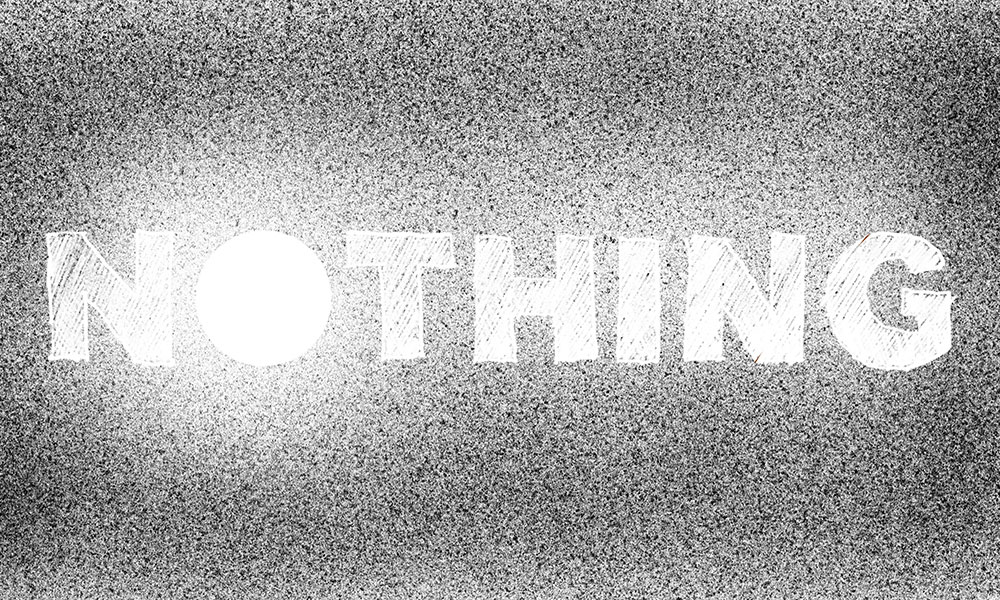The "Nothing Ever Happens" Meme: From Boredom To The Philosophy Of Nothingness
The Meme's Resonance: A Universal Feeling of Stagnation
The "nothing ever happens meme" captures a sentiment that transcends age, culture, and social status. It's the feeling of watching paint dry, of waiting for a bus that never comes, of scrolling endlessly through social media hoping for a spark of novelty. In a world saturated with information and constant stimulation, the absence of significant events can feel particularly jarring. This meme provides a collective sigh of relief, a shared understanding that sometimes, life just... is. It's a humorous way to acknowledge periods of stagnation, boredom, or even existential dread. The power of the "nothing ever happens meme" lies in its relatability, offering a simple yet profound articulation of a common human experience. It's a subtle nod to the quiet moments, the lull between storms, or perhaps, a deeper yearning for purpose and change.Beyond Boredom: The Philosophy of 'Nothing'
While the "nothing ever happens meme" speaks to our daily experiences, the concept of "nothing" itself has been a source of profound philosophical inquiry for millennia. It’s a word we use casually, but its true meaning is elusive and has sparked countless debates. When we say "nothing ever happens," are we truly referring to an absolute void, or merely a lack of *something* we deem significant? This distinction is crucial when we dive into the philosophical underpinnings of "nothing."The Ancient Intuition: Something from Nothing?
**Throughout the history of time, it has been almost everyone’s intuition that something cannot come from nothing.** This deeply ingrained belief, often encapsulated in the Latin phrase *ex nihilo nihil fit* (from nothing, nothing comes), forms a cornerstone of Western philosophy and scientific thought. **That intuition is so strong that many can’t even imagine** a scenario where something truly arises from an absolute void. From ancient Greek philosophers like Parmenides, who argued that "nothing" could not exist because to speak of it was to make it "something," to the common person observing the world, the idea of spontaneous creation from absolute non-existence seems counter-intuitive, almost absurd. This deep-seated conviction shapes our understanding of causality, existence, and even our frustration with the "nothing ever happens meme" – we expect *something* to happen, because *something* must always come from *something*.Defining the Void: Is 'Nothing' Even Real?
The very act of defining "nothing" leads to a paradox. **How can nothing be real?** If it is real, then it exists, and if it exists, it is no longer "nothing." This semantic trap highlights the difficulty in conceptualizing true non-existence. **The basic concept of nothing is the lack of something, so in that statement alone it makes it something.** By articulating "nothing," we implicitly give it a conceptual presence, turning an absence into a subject of discussion. This conundrum is not merely academic; it permeates our understanding of the universe, its origins, and even our daily experiences. When we feel that "nothing ever happens," we are defining that "nothing" in relation to the "something" we desire or expect.Scientific Perspectives on 'Nothing' and Creation
Modern physics, particularly cosmology, has grappled with the concept of "nothing" in the context of the universe's origin. While philosophers often discuss "nothing" as an absolute void, physicists tend to define it in more constrained, empirical terms. This difference in approach has led to fascinating, and sometimes contentious, debates.Krauss's 'Nothing' and Philosophical Allergies
The physicist Lawrence Krauss, in his book "A Universe from Nothing," famously argued that the universe could have arisen from a state of "nothing," defined as the absence of particles, space, and even time, but still governed by the laws of quantum mechanics. However, **Krauss' definition of nothing is the result of the allergy contemporary physicists get from philosophy.** Many philosophers and even some physicists criticized this definition, arguing that a "nothing" that still contains quantum fields and physical laws is not truly "nothing" in the philosophical sense. **The philosopher David Albert posted a crushing criticism of the book in** *The New York Times Book Review*, highlighting that Krauss's "nothing" was still a "something" – a quantum vacuum, not an absolute void. This debate underscores the fundamental difference in how disciplines approach the concept: for physicists, "nothing" often refers to a state with minimal physical content, while for philosophers, it often implies a complete absence of existence.Hawking's Universe: A Scientific 'Something'
Stephen Hawking, another titan of modern cosmology, also weighed in on the universe's origin. **Stephen Hawking has recently argued as to how the universe** could have begun without a divine creator, proposing that the laws of physics alone could account for its spontaneous appearance. His work, particularly in "The Grand Design" with Leonard Mlodinow, suggests that the universe could have emerged from quantum fluctuations. Crucially, their argument implies that **the universe didn't come from nothing, because the words 'come from' have no meaning outside of the universe.** This is a key scientific position: causality, the idea of "coming from," is a concept that operates within the framework of space-time. If there was no space-time before the Big Bang, then asking what the universe "came from" becomes a meaningless question. **That would be the scientific position.** It emphasizes **that you can't use concepts** like "before" or "cause" in a context where they don't apply. This perspective subtly challenges the intuitive notion that "something cannot come from nothing" by redefining the terms of the discussion itself.Theological and Ontological Interpretations of 'Nothing'
Beyond science and secular philosophy, theological and ontological traditions offer their own profound insights into "nothing" and the origins of existence. These perspectives often intertwine with questions of creation, divine will, and the very nature of being.The Biblical Beginning: A Primordial 'Something'
Religious texts, particularly those describing creation, often implicitly or explicitly address the concept of "nothing." For instance, **The Bible says that in the beginning there was a** formless void or darkness, over which the Spirit of God moved. This is not an absolute "nothing" in the philosophical sense, but rather a state of unformed potential, a primordial "something" from which the ordered universe was brought forth. The emphasis is not on creation *ex nihilo* in the strict sense of absolute non-existence, but rather on divine ordering and shaping of existing, albeit chaotic, elements. This theological narrative provides a powerful counterpoint to purely scientific explanations, suggesting that the ultimate "something" (God) pre-exists any "nothing."Medieval Mysticism and the Essence of 'Nothing'
The concept of "nothing" also played a significant role in medieval ontology and mysticism. **That nothing exists is posited in medieval ontology in this attempt mysticism arrives at a peculiar speculation, peculiar because it transforms the idea of essence in general.** Medieval thinkers, particularly those influenced by Neoplatonism, sometimes explored "nothing" not as an absence, but as a transcendent state beyond all categories of being, often identified with the ultimate nature of God, who is "beyond being." This "nothing" is not a void, but a fullness so complete that it transcends our ability to define it with positive attributes. It becomes a mystical "nothingness" that is paradoxically the source of all "something." This transforms the traditional understanding of essence, suggesting that the deepest reality might lie beyond what we can perceive or conceptualize as "something."The Paradox of 'Nothing': When Absence Becomes Presence
The more one scrutinizes "nothing," the more it seems to slip through our fingers, often revealing itself to be a form of "something" in disguise. This paradoxical nature is one of the most intriguing aspects of the concept.The Empty Set Paradox: Nothing as a 'Something'
In mathematics, the empty set is defined as a set containing no elements. It is the quintessential representation of "nothing" in set theory. However, the empty set itself *exists* as a mathematical object. **If nothing existed, for example as an empty set, then something would exist, the empty set, in any possible way that can be.** This highlights a fundamental logical dilemma: the moment we conceptualize or refer to "nothing," we give it a form of existence. **If something exist we cannot say that nothing exists.** This implies that true, absolute "nothing" is perhaps beyond our grasp, as the very act of thinking or speaking about it brings it into being as a concept. This paradox is a constant challenge to those who seek to define "nothing" as a pure, unadulterated absence.When 'Nothing' Might Be a Result of 'Something'
The idea that "nothing" is simply the absence of "something" can be further complicated by considering processes of change and transformation. **'Nothing' might be a result of 'something'.** Consider a room that was once filled with furniture, now empty. The "nothing" (the emptiness) is a result of the "something" (the furniture) being removed. It's not an inherent void but a consequence of a prior state. This perspective suggests that **there was always 'something' but this 'something' is not always the same.** The universe, or indeed any system, is in a constant state of flux. **Sometimes it changes into 'something' else.** This means that the "something" we perceive might transform into a state we label as "nothing" relative to its previous form, rather than arising from absolute non-existence. This dynamic view challenges the static understanding of "nothing" as a fixed, pre-existing void.The Contextual Nature of 'Nothing'
Perhaps the most practical way to understand "nothing" is through its context. Our daily use of the word rarely refers to an absolute philosophical void, but rather to a specific absence or negation within a given framework. This contextual understanding helps us bridge the gap between the abstract philosophical debates and the relatable sentiment of the "nothing ever happens meme."Multatuli and the Liar's Paradox: A Literary Glimpse
The complexity of "nothing" and its relationship to truth and falsehood can be seen in logical paradoxes. **The Dutch 19th-century writer Multatuli (the first to vehemently criticize Dutch colonialism in Indonesia) once wrote this variation on the liar's paradox.** While the exact quote isn't provided, the reference to the liar's paradox ("This statement is false") is significant. The liar's paradox creates a situation where a statement is true if and only if it is false, leading to a logical "nothingness" or undecidability. This illustrates how even in language and logic, the concept of negation and absence can lead to profound and often unresolvable complexities, mirroring the elusive nature of "nothing" itself. It demonstrates how "nothing" can arise from the very structure of our thought and language.'Nothing' as a Negation of Logical Categories
In everyday language, "nothing" is almost always a negation defined by context. **Nothing is the negation of logical categories, defined by context.** When someone says, **"I'm doing nothing,"** they are not suggesting they have ceased to exist or that all physical processes within them have stopped. On the contrary, such a statement **would involve many biological processes, but a specific contextually relevant negation of say,** productive work, or a planned activity. The "nothing" here is the absence of a particular *something* within a specific frame of reference. It’s the absence of action, not the absence of being. This contextual understanding is crucial for appreciating the "nothing ever happens meme." It doesn't imply an absolute cessation of events, but rather the absence of events that are deemed significant, exciting, or new within the observer's subjective context.Embracing the 'Nothing Ever Happens' Paradox
The "nothing ever happens meme" is a simple phrase, yet it opens a portal to some of the most profound questions humanity has ever asked. From the ancient intuition that something cannot come from nothing, to Krauss's quantum vacuum, Hawking's universe without a "before," medieval mysticism's transcendent "nothingness," and the mathematical paradox of the empty set, the concept of "nothing" is anything but empty. When we feel that "nothing ever happens," we are often expressing a desire for change, for new "somethings" to emerge. But perhaps understanding the complex nature of "nothing" can shift our perspective. Could it be that even in moments of perceived "nothing," profound processes are at play? Just as a quantum vacuum is teeming with potential, or an empty room is merely a new configuration of space, our moments of "nothing happening" might be pregnant with unseen possibilities or subtle transformations. The meme, therefore, isn't just a lament; it's an invitation to look closer, to redefine what "something" means, and to appreciate the intricate dance between presence and absence that defines our existence.Conclusion: From Meme to Metaphysics
The "nothing ever happens meme" resonates deeply because it taps into a universal human experience of stagnation and the yearning for novelty. Yet, as we've explored, this seemingly simple expression of boredom inadvertently touches upon one of the most complex and enduring philosophical and scientific debates: the true nature of "nothing." From the intuitive conviction that "something cannot come from nothing" to the nuanced definitions offered by physicists like Krauss and Hawking, and the profound explorations of medieval mystics, "nothing" proves to be a concept far richer and more paradoxical than its everyday usage suggests. Ultimately, the "nothing ever happens meme" serves as a poignant reminder of our human desire for meaning and progression. By understanding the multifaceted interpretations of "nothing"—whether as a philosophical void, a scientific state, or a contextual absence—we can begin to reframe our perception of those quiet moments. Perhaps, in the grand scheme of the universe, even when it feels like "nothing ever happens," the very fabric of reality is engaged in a perpetual, dynamic dance between what is and what is not. What does the "nothing ever happens meme" mean to you? Do you find solace in its shared sentiment, or does it prompt you to seek out new "somethings" in your life? Share your thoughts in the comments below, and consider exploring more articles on the fascinating intersection of culture, philosophy, and the human experience on our site!- Carlos Bakery Prices
- Nikita Dragun Nude
- What Was The Cause Of Natalie Coles Death
- Happy Days With The Fonz
- Swat Cast 2023

Much ado about nothing : NewsCenter

Nothing rolls out Nothing OS 2.5.1 Open Beta 2 update for Phone (1) users

Nothing Phone (2): Price, features, availability - gHacks Tech News